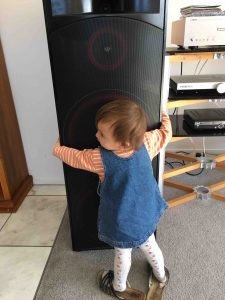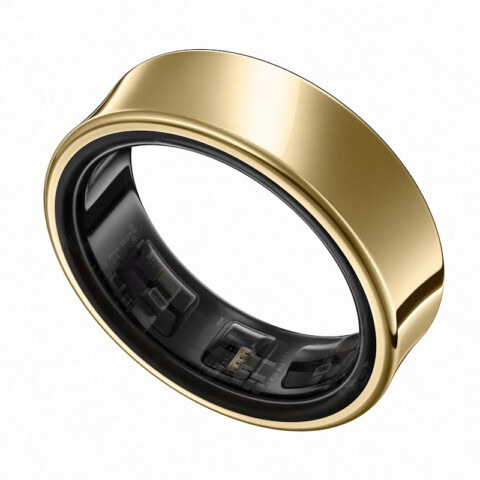Gary Steel goes on the attack against audio snobbery as he details his rock and roll odyssey with Cerwin-Vega loudspeakers.

IT ALL STARTED with an obscure New Zealand band performing in a long-defunct Wellington venue way back in 1980. I was a very young, very naïve 21-year-old soaking up the raw post-punk noise reverberating throughout the city, and having experienced the extraordinary noise of Christchurch group The Gordons several times over the previous year, I jumped at the chance to see them on a return visit to the first floor Courtenay Place venue The Last Resort.
What I didn’t anticipate was that unlike their previous shambolic visits to the Capital city, this time the trio would be blasting its short, sharp and extremely loud songs through a real PA system. As soon as I recovered from the incredible sound and fury of their opening song, I caught a glimpse of the branding on the speakers: Cerwin-Vega. Up to now, every gig I’d seen by The Gordons had been quite astonishing, but it had often been difficult to differentiate the intentional distortion and feedback from the lo-fi murk produced by poor PA systems in poor acoustical spaces. Suddenly, the full power of the group was revealed: dynamics that sent shivers up my spine, volume with clarity (equals power), treble that could scoop the wax out of your aural cavities, bass that revealed the textural undertow along with real slam from the drums. It helped that the Last Resort wasn’t like an echoing school assembly hall, or all-windows like so many other pub venues at the time. It had carpet, and cushions.
For some reason, I thought that Cerwin-Vega only made PA speakers, and many years were to pass before I realised that the company made domestic stereo loudspeakers, as well as car speakers. I never really thought about them again, until I started working for hi-fi magazine Tone in 2004, where every now and then, audiophiles would paint the brand in derogatory colours. The general consensus seemed to be that the car speakers were for boy racers, and the domestic stereo speakers were for Westies and bogans. Sure, they could go real loud, and they had big drivers, but they sounded like crap.
Perhaps it was the bogan in me, but I felt as though Cerwin-Vega may have been the victim of a bit of audiophile snobbery. Last year, I finally got around to doing a bit of research on the brand, and found a review from Absolute Sound, dated 2009, on the CLS-215 speakers that made them sound fairly promising. It was full of praise phrases like “huge power used to do something delicately exquisite”, “one of the most relaxed set of speakers I have ever encountered”, and most enticingly, “they go down, all the way down.” In addition, there were words like “low distortion”, “neutral”, “dynamic power” and “full range extension.”
So here’s the thing, and please excuse me all you audio buffs, but I reckon most audiophile loudspeakers just don’t go deep enough, or have enough grunt for a lot of the music I really like: that is, cutting-edge electronic music, dub-influenced music, and grunty rock. Too many audiophile speakers sound fantastic on rancid jazz or standard classics or anything acoustic, but just don’t seem to cut it when it comes to the reflexes required for rock, or the sub-bass modulations required by modern electronica. I’ve had this conversation with a few audio obsessives, and most of the time, they reckon that the real action in music is in the mids and highs, and a good speaker is one that can “realistically” ape the transients, dynamics, soundstage, textures (etc) of a real performance by real instruments. Fair enough, and I know that human hearing gets considerably less able as bass gets lower, but I hear things coming from very low bass that gets my rocks off, so to speak, and I’m not just talking about boom-boom. And anyway, I could really give a rat’s ass about aping ‘real instruments’, as probably around 50 percent of the music I really, really like is electronic or otherwise “inauthentic”: that is, ever since the psychedelic explosion in the late ‘60s, most of the really creative music-making has come out of the possibilities of studios and the ability to overdub and create musical worlds that had little to do with “authentic” stuff like bands playing in a room.
 Anyway, after I read the Absolute Sound review of the CLS-215 speakers, I started casually looking, and soon found a pair on Trade Me. I simply could not resist. At the fairly reasonable price of just over $1K, I thought it was worth taking the risk. As it happened, the previous owner hadn’t been a bogan with the speakers, and they were in pristine good nick. He was a young guy who was moving to a small house in Titirangi, so he’d bought a small pair of Cerwin-Vegas to replace these behemoths. When he kindly delivered them to my then-address in Helensville, he explained that his Dad was an audiophile who was really into his GoldenEar speakers. He knew that his Cerwin-Vegas were of a different breed, but had found them really good for dance music and rock.
Anyway, after I read the Absolute Sound review of the CLS-215 speakers, I started casually looking, and soon found a pair on Trade Me. I simply could not resist. At the fairly reasonable price of just over $1K, I thought it was worth taking the risk. As it happened, the previous owner hadn’t been a bogan with the speakers, and they were in pristine good nick. He was a young guy who was moving to a small house in Titirangi, so he’d bought a small pair of Cerwin-Vegas to replace these behemoths. When he kindly delivered them to my then-address in Helensville, he explained that his Dad was an audiophile who was really into his GoldenEar speakers. He knew that his Cerwin-Vegas were of a different breed, but had found them really good for dance music and rock.
My wife hated them. The lounge became cramped and visually impaired. Let’s face it, they’re just big fat blocks with loudspeakers mounted in the front. They were painted black over some kind of composite wood material, and the front of them looked like they were built to survive one of those infamous venues where bottles get thrown if the crowd don’t like the band. The tweeters had a plastic horn-like enclosure, and the drivers were protected by very strong wire. The sound, however, was indeed much, much better than their reputation would suggest.
It would have been interesting pairing them with genuine audiophile components, but I had to make do with my humble Perreaux Audiant 80i integrated amp, with the main source component my trusty Yamaha CD-S2000 SACD player. What impressed me straight away was the sense of control the speakers exhibited. Because they’re very efficient, my 80 watt amp unexpectedly had plenty of juice to power them, and no matter how loud I cranked them, they just took the punishment with ease. What surprised me was that they’re not just glorified ghetto-blasters; that they were eminently capable of reproducing sophisticated, nuanced music, and that they were also quite revealing of poor and great recordings alike. Considering that each speaker had two huge 15-inch bass drivers, it was curious that the bass wasn’t overpowering at all. Instead, there was simply an extra dimension with their ability to go so low, with such ease, whenever the recorded music actually featured low bass sounds. There was no bass lag and none of that dull, tuneless thud that you get from poor bass drivers or subwoofers. Having said that, I did feel at times that the bass was a little inhibited by the small-to-average size of my lounge.
 They did indeed sound great on electronic music, and I was amazed that like my Martin Logan hybrid electrostats, they were capable of a decent soundstage, with stereo imaging that, in the sweet spot, could give a 3D-type illusion on the right music. It seems ridiculous – and given the aesthetics of the speakers, it looked ridiculous too – but the CVs also sounded excellent on classical music. For instance, I played a hi-res version of Mussorgsky’s Pictures At An Exhibition that filled the room with orchestral grandeur.
They did indeed sound great on electronic music, and I was amazed that like my Martin Logan hybrid electrostats, they were capable of a decent soundstage, with stereo imaging that, in the sweet spot, could give a 3D-type illusion on the right music. It seems ridiculous – and given the aesthetics of the speakers, it looked ridiculous too – but the CVs also sounded excellent on classical music. For instance, I played a hi-res version of Mussorgsky’s Pictures At An Exhibition that filled the room with orchestral grandeur.
There were occasions late at night when the lights were dim and I’d had a couple of glasses of nice wine where I would have sworn that the Cerwin-Vegas were just as good – if not better – than most affordable hi-fi speakers. But in truth, in the cold light of day, what the CLS-215s lacked was something almost indefinable. They lacked magic. Now, ask a studio boffin what they want from a near-field monitor and they’ll say accuracy (and other technical stuff) but the word ‘magic’ isn’t in the vocabulary. In fact, one of the criticisms audio engineers often have for the audiophile aesthetic is that high-end hi-fi speakers prettify the sound, add a signature that isn’t strictly realistic. They might have a point. While some hi-fi enthusiasts like the idea of hearing exactly what’s on the disc, or the sound file, the reality is that we want music to unleash some kind of sonic sorcery; to transport us to another place. To me, the Cerwin-Vegans were rather monitor-like. They were certainly capable of detail, if not quite to a forensic level. I think they’re tailor made to do their thing pragmatically, without fuss, and do it well, but the mids and highs just lack that x-factor you get from a really great pair of high-end speakers, that thing that suddenly brings someone’s vocal performance not just into the room, but seems to slam it straight into your head, so that the audio mingles with the emotions on a seemingly higher plane.
If I’d had a really big house I might have begged the wife to keep the Cerwin-Vegas, but a couple of events transpired that sealed their fate. First, we moved up North and for awhile, I only had space for one set of speakers, and sonically, it was the signature sound of my Martin Logan Purity’s that I missed, and wanted back in my life. Then when my brilliant wife allowed me to take over the master bedroom for a dedicated two-channel listening zone, I realised that I simply needed something better than the CVs. Early last year, I had auditioned the phenomenal GoldenEar Triton One’s, and I succumbed to buying a pair. The MLs would become the entertainment hub in the lounge, and the Triton One’s the speakers on which I audition all my review music.
I really, really liked the look of those four huge 15-inch drivers, and you can’t see any speakers at all through the “sock” that covers the Triton One’s, but the GoldenEar’s perform better than the Cerwin-Vegas in every conceivable way, and with genuine in-built subwoofers, they go at least as low. I love both my Martin Logans and my GoldenEars: while they each have quite different sonic characteristics, there are some similaraties (precise stereo field, 3D sound, incredible detail). The MLs have the edge in some ways, but the GEs are a more full frequency speaker (much deeper bass, more dynamism and life at certain frequencies). So with two brilliant (albeit considerably more costly) speakers on the premises already, the only conceivable reason for keeping the Cerwin-Vegas would be as a hire-a-party service, and that’s not me.
I can see where the snobbery against Cerwin-Vega comes from. The branding (those huge, red-edged drivers) isn’t sophisticated, and the cabinetry isn’t aesthetically appealing, unless you’re a rock and roll animal who likes to get down in the moshpit and dreams of putting your head slap bang inside the monitor. Yeah, they’re rock and roll in the looks department, but in many ways, I think that review (which went right against the grain) was right: for the price, the CLS-215 is quite a remarkable speaker, and any normal music fan who wasn’t obsessed with pleasing wood-grain cabinets would love them to death.
 In fact, the guy who bought them from me last week was stoked with his purchase. He already owned a pair of the same speakers, which he’d heard at his friend’s posh Devonport villa, and was wowed by the best sound he’d ever heard. This guy got an uncomprehending crinkle on his forehead when I mentioned the word ‘audiophile’, so clearly, he’s not quite on the hi-fi ladder. And although I wouldn’t agree with him that they’re the best speakers ever, I respect him for recognising that they’re much, much better than one of those neighbour-bothering party-lights-flashing glorified boomboxes that the whiteware shops sell. GARY STEEL
In fact, the guy who bought them from me last week was stoked with his purchase. He already owned a pair of the same speakers, which he’d heard at his friend’s posh Devonport villa, and was wowed by the best sound he’d ever heard. This guy got an uncomprehending crinkle on his forehead when I mentioned the word ‘audiophile’, so clearly, he’s not quite on the hi-fi ladder. And although I wouldn’t agree with him that they’re the best speakers ever, I respect him for recognising that they’re much, much better than one of those neighbour-bothering party-lights-flashing glorified boomboxes that the whiteware shops sell. GARY STEEL
















AUTOPSY – TOURNIQUETS HACKSAWS & GRAVES
Unfortunately, NZ does not sell CV’s…
I had a pair of CLS-215’s from 2012 till 2017, Probably my biggest regret was selling them. Now I’m on the hunt for XLS-215’s but there are very few over here.